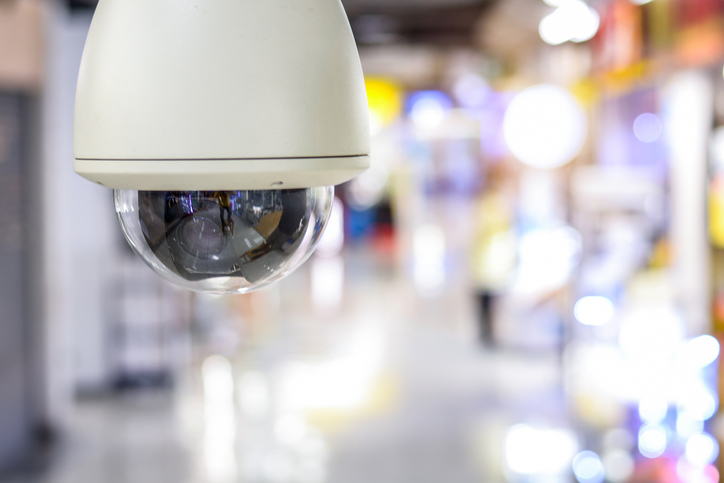Business Security Should Never Be Do-it-Yourself
Small businesses face unique security threats. Commercial properties unoccupied at night or on the weekend are often targeted by criminals. In many cases, the value of theft or damage isn’t high enough to justify the cost of an insurance claim. This can leave business owners facing substantial costs.
Consider this. The Office for the Victims of Crime (OVC) reports that 28.4 percent of all burglaries happen at non-residential properties. As noted by Small Business Trends, meanwhile, many owners pay almost $8000 out-of-pocket after burglary or theft incidents.
The best way to deter this type of activity and reduce potential payouts? Install a reliable small business security system. However, just as some owners are reluctant to make insurance claims given high deductible costs and longer-term payment increases, many wonder about the merits of do-it-yourself (DIY) security systems. Easy-to-install security systems offer the potential for cost savings and reduced upkeep. But, they may cause more problems than they solve.
| Learn how Cox Business Security Solutions can help protect your business with security features like professional monitoring, remote access, customized alerts, and more. Learn More |
A few of the Dangers of DIY Security
Lack of Proper Monitoring
Wireless cameras can now stream video to virtually any mobile device; paired with a low-cost computer system, they can also capture pictures, and video for later use. Add in motion sensors and many small business owners would consider this a solid starter security system: After-hours movement should be quickly detected, in turn activating cameras and providing a record of any criminal activity.
In practice, however, things aren’t so simple. Consider a break-in during the early morning hours. Sleeping small business owners may not wake up when notified by their smart device, or may have it charging in another room. The result? Burglaries that go unnoticed until the next day, lowering the chance of catching those responsible.
Professionally monitored systems, meanwhile, typically include a 24/7 guarantee. Reputable providers employ multiple monitoring teams to ensure that any alerts are quickly reviewed and appropriate action is taken. This includes everything from notifying small business owners to calling the police or warning off would-be burglars with built-in two-way audio.
Installation – Easier Said than Done
DIY security systems promise easy installation. Find the ideal location for your camera or sensor, plug it in, connect it to your wireless network and you’re protected, right?
Not quite. When setting up your business alarm system, there are questions you need to answer: How many cameras will provide adequate security? Are there areas of your business that require extra coverage, such as front doors or windows? Cash registers? Safes or lock-boxes? Wiring is also a concern — if criminals can easily spot where cameras are connected, they can simply pull the plug and avoid getting noticed.
Local experts, meanwhile, have the benefit of security system expertise. This lets them design a custom installation for your business that covers critical areas of concern, adds motion or glass break sensors where applicable, and then conduct thorough testing of your system. Also worth noting? Problems with the system itself are typically covered under warranty when installed by a professional. When done DIY, you’re on the hook for repair and replacement.
Vulnerabilities Can Open the Door to Hackers
Many DIY security systems tout professional-grade security and offer multiple anti-hacking measures, such as two-factor (2FA) authentication. During installation, simply create strong, unique passwords, and you’re good to go.
However, two problems exist. First, consumer-grade products may lack advanced encryption and cyber monitoring features used by business-grade devices. Cybercriminals may gain root access to your cameras, allowing them to watch video footage or execute malicious code on your networks. The second problem stems from firmware and patching. DIY solutions rely on the end-user to stay on top of updates and newfound vulnerabilities. Doing so can be time-consuming, and not all equipment manufacturers regularly update support documentation.
Professionally installed systems use business-grade products and include an equipment service plan. Moreover, they have a dedicated team of experts in tune with the latest methods used by hackers. Your provider handles firmware updates, ensuring your devices and software are secure.
Videos May Not Meet Court Admissibility Standards
Business owners use security systems to dissuade would-be criminals from illegal activities. But what happens when something bad occurs? Taking your case to court should be an open and shut case when it’s backed by video footage.
Unfortunately, not all video footage is admissible in court. Admissibility depends on three factors: Conservation, genuineness, and policy. Courts want unalterable and unambiguous footage that’s stored safely and meets state guidelines. Although your DIY system may be high-tech, some equipment doesn’t encrypt recordings, leaving them open to potential alteration. Plus, promises of HD video don’t always live up to the hype. Instead, business users should pay attention to the camera’s resolution, frame, and compression rates.
A business security system provider provides industry expertise that extends to best practices for legal matters. They have policies proving that videos are stored safely and protected from manipulation. Video footage may feature watermarks to prevent alteration and offer devices with high-resolution video.
Support On-Demand
What happens when you’ve got questions about your security system? If you’re running a DIY installation, you can try calling the manufacturer directly or searching for online forums that detail your particular problem. While some camera makers have better-than-average customer service and there are some genuinely brilliant DIY system creators in the market at large, searching for support can be both time-consuming and frustrating — and may not solve your problem.
Providers in your local area are just that. They’re local. If you have a problem, they have detailed knowledge of your system to help solve it. A quick phone call might be enough to diagnose the issue, or you might need the help of an on-site tech. Either way, you’re not waiting for long, and your security system issue gets sorted out while you conduct day-to-day business.
What Happens When your DIY Business Security Stops Working
As noted by Inside Small Business, many small business owners are working longer hours than medical professionals. More than a quarter of those surveyed said they work over 50 hours each week. This makes sense. Owners are tasked with everything from high-level business management to ensuring HR compliance, handling payroll, and stepping in when employees are sick or quit. The result? Constant stress. With more than 50 percent of small businesses failing in their first year, the last thing owners need is something else to worry about.
So what happens when DIY security systems stop working? Suddenly, the wireless camera you installed won’t record video, or the motion sensor refuses to recognize any type of movement. What if your wireless network is compromised and hackers gain access to your system from the inside? What’s the first step to locking down your IT infrastructure and getting back on track? Here’s the hard truth: DIY security often creates more work than it saves, forcing small business owners to become security experts when they’d be better off finding new ways to maximize profitability and keep their business in the black
An essential benefit of professionally installed security systems? The worry-free guarantee. Look for a provider that guarantees system uptime, hardware support, software upgrading and provides emergency call-out service as required. You’ve got enough to worry about; don’t add security to the list.
The Real Cost of a Security System Failure
The most significant selling point of DIY security? Low cost. Compared to installation, hardware, and monitoring fees this often seems like a simple choice for small business owners already dealing with thin profit margins: Buy basic cameras for cheap, install them quickly and then never pay another dime, right?
Right. But, what if the system fails to capture key footage of a robbery or doesn’t record critical video evidence required when claims are made against your business. Suddenly, the “cheap” system you installed costs thousands in insurance payouts or legal fees. This can leave a business owner frustrated and financially strapped.
Provider-installed systems aren’t cheap, but costs reflect their quality. Think of it as an investment — potential money lost when DIY systems fail is orders of magnitude higher than the amount you’ll pay upfront and monthly for peace of mind.
DIY vs. Professional Systems: The Verdict
Do-it-yourself security offers benefits for small businesses. Low cost, easy installation, and total control. The caveat? They often lack monitoring, design, and ongoing assistance — and if something goes wrong, “low cost” can quickly become a budgetary nightmare.
Bottom line? When it comes to protecting your livelihood, the benefits of professional installation and worry-free support far outweigh the dangers of DIY



